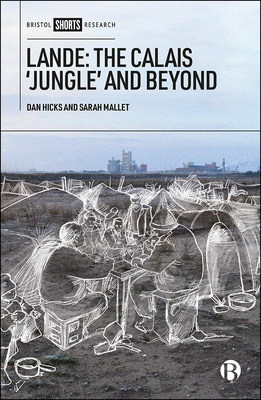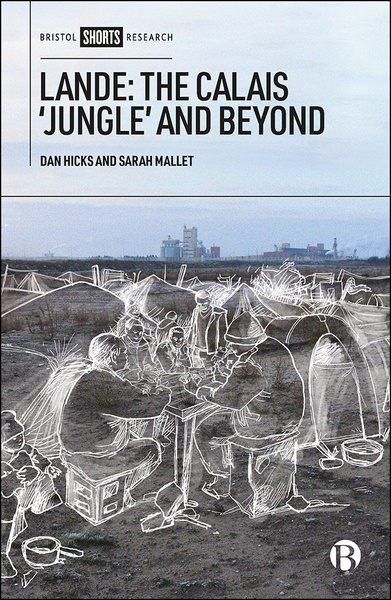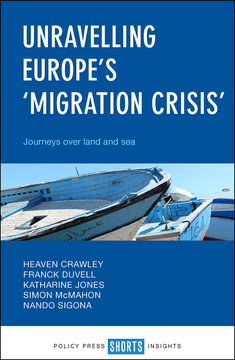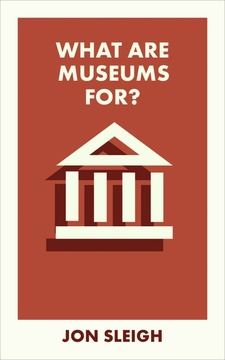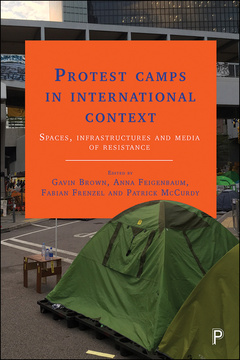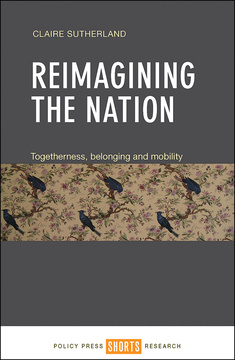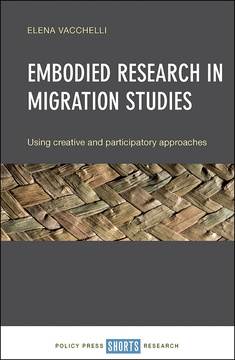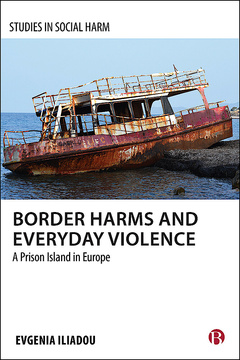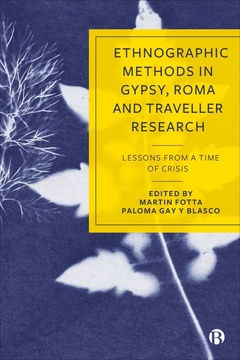Lande: The Calais 'Jungle' and Beyond
By Dan Hicks and Sarah Mallet
Published
22 May 2019Page count
154 pagesISBN
978-1529206180Dimensions
198 x 129 mmImprint
Bristol University PressPublished
22 May 2019Page count
154 pagesISBN
978-1529206210Imprint
Bristol University PressPublished
22 May 2019Page count
154 pagesISBN
978-1529206227Imprint
Bristol University PressPublished
22 May 2019Page count
154 pagesISBN
978-1529206197Imprint
Bristol University PressIn the media
On our blog: 'IMPACT CASE STUDY: Creating space for protest and problem-solving'
'Lande: The contemporary archaeology of the Calais "Jungle"' on Suite (212)
Available Open Access under CC-BY-NC licence.
How can Archaeology help us understand our contemporary world? This ground-breaking book reflects on material, visual and digital culture from the Calais “Jungle” – the informal camp where, before its destruction in October 2016, more than 10,000 displaced people lived.
LANDE: The Calais 'Jungle' and Beyond reassesses how we understand ‘crisis’, activism, and the infrastructure of national borders in Refugee and Forced Migration Studies, foregrounding the politics of environments, time, and the ongoing legacies of empire.
Introducing a major collaborative exhibit at Oxford’s Pitt Rivers Museum, the book argues that an anthropological focus on duration, impermanence and traces of the most recent past can recentre the ongoing human experiences of displacement in Europe today.
“Through drawings, photographs, objects and audio recordings—most of them borrowed from volunteers who worked in the camp—they have turned a political irritation into a powerful human drama about cruelty and kindness… Migrants fleeing poverty and war is one of Europe’s biggest political challenges. As this exhibition shows, how Europeans decide to treat them is a profound moral test, too.” The Economist
“For Hicks and Mallet, the Jungle was not an event, not something that existed in a single time and place, but part of a process – one that is not over. In fact, it may be only just beginning.” The Guardian.
“Shocking, stunning, sobering. Lande: The Calais 'Jungle' and Beyond forces us to ask who we are, what we'd do in the shoes of others, and whether we can continue to look away from what Calais has become.” Danny Dorling, University of Oxford
"This deeply informed, richly illustrated and politically engaged book describes border camps as hostile environments in which humans resist impermanence by their relations to objects." Frédéric Keck, CNRS and Laboratoire d'anthropologie sociale
“An unsettling work of border archaeology that documents how a war of things (tents, shoes, and flowerpots) is really about who gets to be human.” Shannon Lee Dawdy, University of Chicago
Dan Hicks is Professor of Contemporary Archaeology at the University of Oxford and a Fellow of St Cross College, Oxford. Dan’s research combines Archaeology and Anthropology to study the modern and contemporary world through material and visual culture, from museum collections to landscapes and ‘heritage’.
Sarah Mallet is Postdoctoral Researcher and TORCH Research Fellow in the School of Archaeology at the University of Oxford, and co-curator for the Pitt Rivers Museum exhibition LANDE: the Calais ‘Jungle’ and Beyond.
Preface
Introduction: borderline archaeology
Environmental hostility
Temporal violence
Visual politics
Giving time







